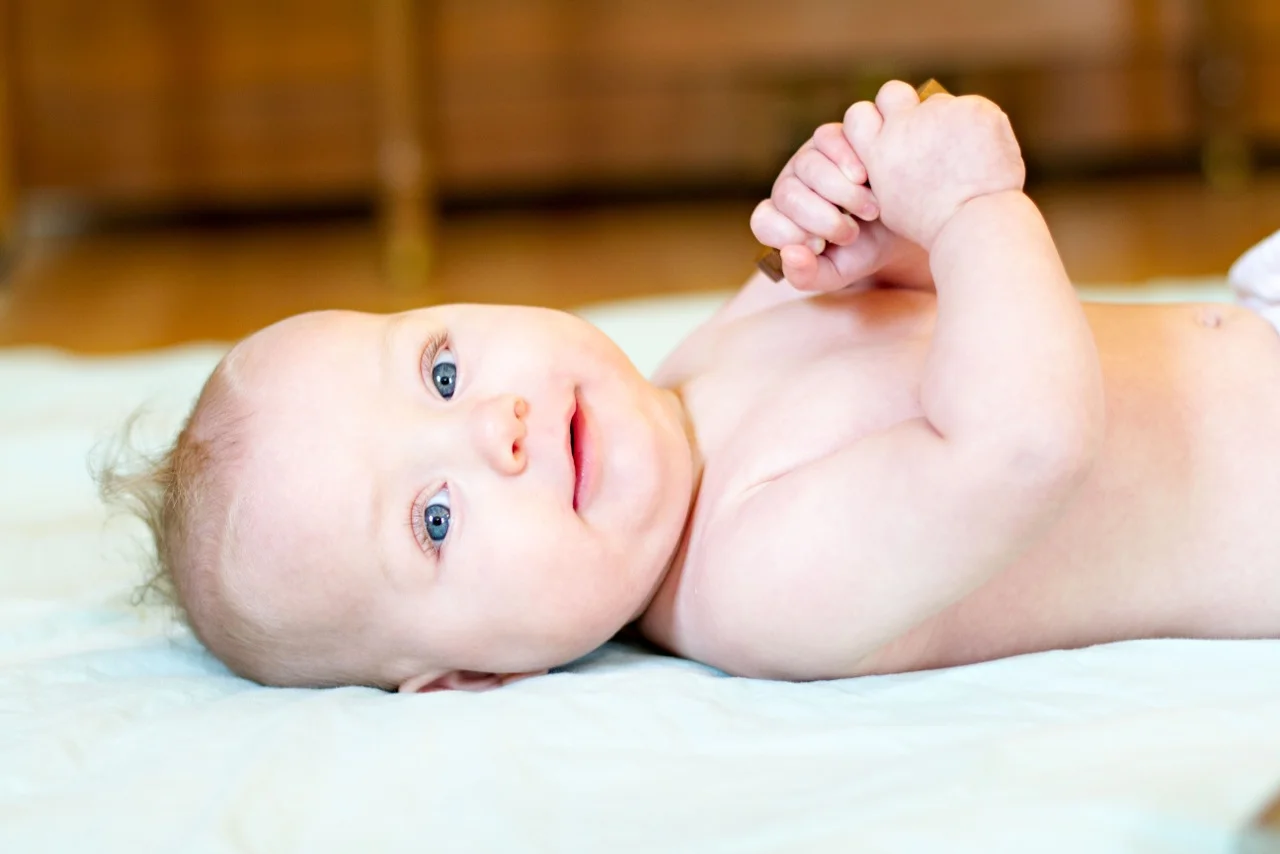Play But Stay Out of the Way
/
Two weeks ago I had the privilege of attending the RIE Conference and hearing Dr. Stuart Brown speak about Play. He spoke about the importance of play and different kinds of play, but the thing that stuck with me the most was how we have “play signals” that indicate to others that we are ready for fun, and that play is encouraged here and now. If you have ever attended a RIE Parent/Infant Guidance class you know that allowing the children to play is the whole point, but the facilitator and the parents pretty much sit back and stay out of it. RIE advocates that we trust children to be the initiators of play. RIE also encourages independent play, allowing the child to fully explore according to their own interests, capabilities, and desires. Even though Dr Brown and RIE both believed in the importance of play I wondered if this idea of “play signals” was compatible with RIE. So, I spent the last two weeks examining how, if, and when, I used play signals with my children, and at my school. Here is what I discovered.
I think those of us who are “good with children” are playful or frequently transmit play signals even when we don’t think about it. That’s kind of what children like about us. It’s what lets them trust us a little.
There are things about my basic personality and my life that are play signals. I love to laugh. I gravitate towards funny people. I was lucky enough to find a very funny guy to marry and have four kids with. My children constantly amuse me. I guess what I’m saying is that there is a lot of joking around and good natured teasing at my house. Now, there are many different kinds of humor and I don’t think some of them encourage play. Sarcasm for example doesn’t make people feel free and creative. For the most part our joking is light and positive. I will admit that at times I have crossed the line with teasing that makes my kids upset rather than playful. Just the other day my son came in the kitchen and said “I’m hungry” and like I have many many times I said “Hi Hungry. I’m Mommy” and started to make him a snack. He looked at me very seriously and said, “I don’t like it when you say that. It’s not funny to me.” I realize he felt like I wasn’t taking his basic need very seriously and that it just wasn’t funny. I told him I wouldn’t say it again.
The other thing that there is a lot of at my house and at my work is singing and dancing. I think of this as a play signal. Again, I am more likely to be singing Zip-A-Dee-Do-Dah rather than Lady in Red. I don’t do it with the intent of getting people to sing or dance with me, but often that’s what happens with kids. I just do it because I like to. It feels good to me and I think that is the play signal, it is ok to do fun stuff that you like in this place at this time.
One thing I noticed myself doing a lot at the toddler center was opening the door to something and then getting out of the way. For example: We have several cars that the children can get in and push themselves around in. So, occasionally a child will get in a car and say “Miss Melanie, I’m going.” I will say “Have a good trip. See you later.” The child may have just meant that they are moving in the car and they clearly know that they are not going somewhere away from the center, but what I said seems to have the affect of opening up possibility. They all seem to really like when I say it, and it often leads to imagination play that may not have happened. I’m not telling them to imagine that they are going somewhere. “I don’t say have fun at Disneyland.” I leave the rest up to them. They can accept my play signal or go another way, but clearly I am ok with them being imaginative.
Great Expectations -- This is another way I think I signal play. When a child calls me over to see a painting or a creations, I will say something like “What do we have here?” with the full expectation that this can’t simply be three smudges of paint on a white sheet of paper. It clearly must be more. Often much, much more. If the children are building a ramp and it tips off its support blocks, I might say, “What’s going to happen now?” That gives permission for endless possibilities. I don’t fix their “problem,” because there was no problem -- they were playing and something unexpected happened.
Most of what I have been talking about has to do with groups of children. In those cases I would much rather encourage the children to play with one another rather than with me. I try to get out of the way as much as possible. However, we as parents all want to play with our kids. Dr. Brown stressed the connection that happens when people play together. They sync up. Who doesn’t want that with their kids? RIE advocates for parents to provide time for uninterrupted play for their children. No one who has studied RIE would ever suggest you don’t play with your kids. There can be time for both. However, when we do play with our children I think we should give them the signals that we are ready and willing to follow their lead. Let them take us on a wonderful play journey.

